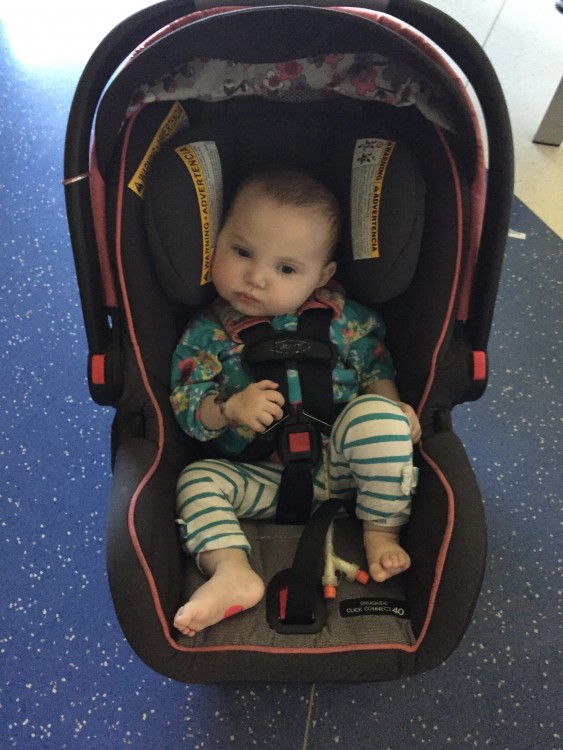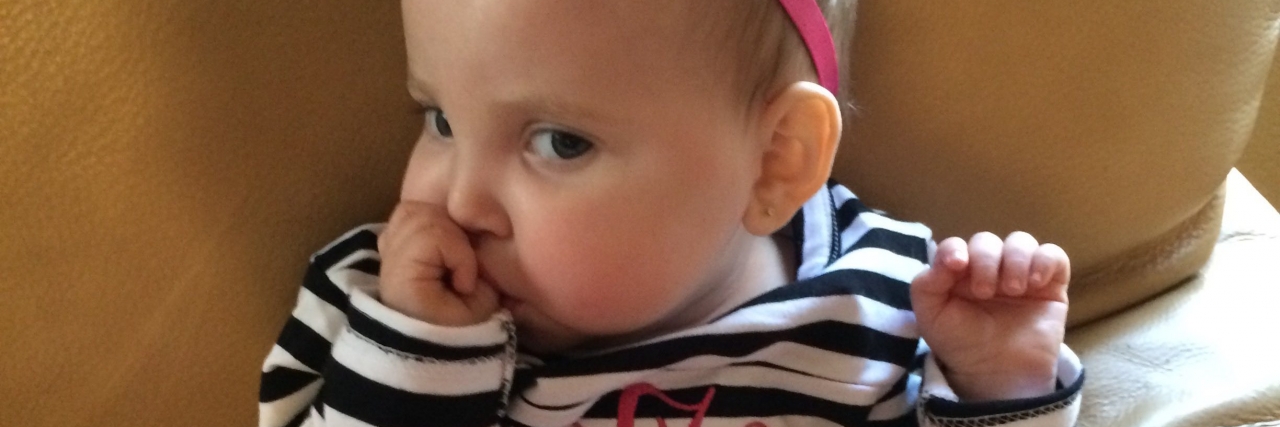8 Things I Wish I Knew When My Child Was Diagnosed With a Rare Disorder
In less than two weeks, we will be celebrating the one-year anniversary of our daughter’s diagnosis day. When she was 8 weeks old, after a month of being officially diagnosed with epilepsy, we learned the cause of her seizures was due to a genetic mutation known as CDKL5 (a rare genetic disorder that results in difficult to control early onset seizures and severe to profound developmental delays). In honor of this day, I would like to share a list of the eight things I wish I knew when my daughter was initially diagnosed with a rare disorder.
1. You will need time to grieve.
Grief is not solely reserved for those who have physically buried a child. While you have not lost your child to death, you have lost the “healthy child” you anticipated you would have. It takes time to come fully to terms with your child’s diagnosis. Do not rush the process. Even a year after the diagnosis, there are still days that result in grief. Grief over the past, grief over the present and grief over the future life your child may lead. Grief comes in waves and you should not expect to just “get over it.” It is OK. Allow yourself time to grieve over the expectations you had prior to the “finality” of the diagnosis.
2. Do not be consumed by your grief.
While it is more than appropriate to grieve, it is important not to let that grief overshadow the physical presence of your child. You never know how long your child will be here on this earth and you don’t want to waste your precious time with him/her missing out on the joys of parenthood that do exist. Live each day with as close to zero regrets as possible, so if God forbid you have to say goodbye sooner than you anticipated, you will not look back and say, “I wish I…”
3. Having your child receive his/her diagnosis at an early age will not necessarily change the outcome.

Not everyone is “fortunate” enough to have his or her child diagnosed when he/she is 8 weeks old. We thought for sure that our daughter being the youngest child diagnosed with CDKL5 would mean that she would surpass the other children in the ages she would attain developmental milestones. We thought since we had so many parents giving us advice regarding what they would have done had their child received their diagnosis early, that our daughter would be able to accomplish more and avoid more of the hurdles. In the end, you can be as “prepared” as humanly possible, you can think you can outsmart the disorder, but when your child has a rare disorder, the rare disorder will still run its course.
4. Having a diagnosis will give you closure in one sense, but will also leave you with doubts regarding the future.
You will hear many times that “At least you know,” or “You are so lucky your child was diagnosed at such a young age.” This is true on one hand, as you have a support group available, you have a “projected route for your child’s journey”, and now all the symptoms your child displays make sense. On the other hand, you are seeing first-hand the ugly side of the diagnosis. You will witness the struggles that potentially lie in your child’s future. You will see babies and young children die along the way. You are seeing a glimpse into the potential life your child will lead. You can no longer hide yourself from the facts. You are no longer able to be blissfully ignorant. This can leave you feeling sad and defeated. It is OK. Take it all in and know that every child is different. Your child will write his or her own story and follow her own path. Just follow their lead.
5. You are not a failure.
There will come times following your child’s diagnosis that you will look at other children and see their accomplishments and feel like it is your fault your child has not accomplished the same milestones. All children develop individually at their own speed and have their own unique strengths. What your child can and cannot do is not a reflection of how much time, energy, effort and love you are pouring into your child.
6. Do not judge the parents who have older children with your child’s diagnosis.
When you look at children who are older with the same diagnosis as your child, your thoughts may wander to, “Well, if they knew early on, then they would have been able to do this and that by now.” You may think enrolling your child in every therapy imaginable will make all the difference. Keep in mind that all those children were babies themselves and their parents did what you are doing now, and they will always do right by their child as you will do for yours. Just because you do not see their child meeting milestones does not mean these parents are not working with their child every day.
7. Lean on the parents of other children with your child’s diagnosis for support and guidance. They will be your best tool.
If you are as lucky as we have been to have an amazingly active and supportive online community that has children with your child’s diagnosis, become part of it. Immerse yourself, make friends and get to know the other children and parents. They will be there in your time of need. They get it. They will lift you up when you are down, they will sing praises when your child excels. No one knows what you are going through better than fellow parents. No matter what part of the journey each parent is on, each mom and dad will welcome you into their lives as if you are family, because you now are.
8. Trust your parenting gut.
You will spend a lot of time in and out of doctors’ offices and hospitals. You will find professionals who have your child’s best interest at heart and others who will not. Regardless, no one is a better judge of what is going on with your child than you! Trust your intuition and trust your knowledge. You know more about your child than any doctor does. Always go with your gut!
Follow this journey on Sonya’s Story or on Facebook.
The Mighty is asking its readers the following: If you could go back to the day you (or a loved one) got a diagnosis, what would you tell yourself? If you’d like to participate, please send a blog post to community@themighty.com. Please include a photo for the piece, a photo of yourself and 1-2 sentence bio. Check out our Submit a Story page for more about our submission guidelines.

